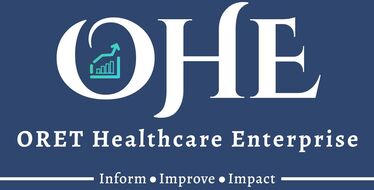In Kotter’s fable, the penguins reveled in their seemingly perfect existence on a solid iceberg until they observed a potential calamity – a growing crack threatening their survival. Similarly, we are standing on an iceberg of health inequity, a stark blemish on our otherwise advanced healthcare system. This crack, much like the one the penguins faced, threatens the very foundation of our society.

Take, for example, the reality of a low-income neighborhood in Baltimore. Grace, a single mother of two, works tirelessly at a minimum wage job, struggling to manage her Type 2 Diabetes. Her limited income doesn’t stretch far enough to afford fresh, nutritious food or regular medical check-ups. Public transportation is erratic, making hospital visits a logistical nightmare. These daunting socioeconomic factors constitute the cracks in our iceberg—health inequities—that Grace and countless others face daily.
Navigating the Iceberg: Unveiling Cracks and Opportunities
Yet, the story of Grace isn’t a narrative of despair but a call to change. Like the penguins’, our societal iceberg is cracking under health inequities. But cracks can also bring forth light, illuminating new ways forward. Consider an emerging healthcare model in New York where a consortium of hospitals, insurers, and community organizations collaborate to manage chronic disease rates. They use data analytics to identify high-risk populations, provide community health workers, and promote healthier living. These initiatives, reminiscent of the penguins’ search for a new iceberg, reflect our capacity to transform adversity into opportunity.
Collaborative Leadership: Engaging Stakeholders and Overcoming Barriers
In their quest for survival, the penguins formed an unlikely team. Similarly, the road to health equity requires a coalition of diverse stakeholders. Picture the “Health Equity Roundtable,” where physicians, insurers, social workers, policymakers, and tech giants gather to address health disparities. However, like the dissenting NoNo, we will face resistance—technological limitations, traditionalist thinking, and regulatory hurdles. Still, our penguin heroes show us that these barriers are not insurmountable and that unity in action can yield transformative results.
Strategic Transformation: Envisioning Change and Implementing Solutions
An 8-step process must guide our strategic compass. This method was successfully employed in a Boston clinic that undertook a project to reduce racial disparities in hypertension control. A sense of urgency was cultivated, a guiding coalition was formed, a clear vision was defined, and new behaviors were institutionalized. By leveraging Lean Six Sigma and technology, the clinic monitored KPIs, such as blood pressure control rates, demonstrating a significant improvement over time. The clinic’s transformation echoes the penguins’ journey to a new iceberg, with data, strategy, and collective effort at the helm.
Actionable Strategies & Tools
We must take actionable steps forward to enact meaningful change and move towards a future of health equity. Here’s how:
- Identify the cracks: Implement community awareness campaigns on health inequities, utilize public health data to identify high-risk areas, and collaborate with social welfare organizations to provide essential resources.
- Navigate the iceberg: Adopt collaborative healthcare models involving diverse stakeholders, deploy data analytics for population health management, and invest in preventive healthcare and social determinants of health.
- Engage in collaborative leadership: Establish cross-functional teams to address health inequities, host regular roundtable discussions among stakeholders, and develop and apply digital health solutions.
- Undergo strategic transformation: Adopt the 8-step change management process, utilize Lean Six Sigma for process improvement, and monitor KPIs for continuous quality improvement.
Empowering Change with ORET Healthcare
At ORET Healthcare, we’re deeply inspired by the penguins’ journey toward a more secure future. We believe everyone should have access to quality healthcare—regardless of socioeconomic status, race, or geographical location. We offer comprehensive services, from Health Information Management to Lean Six Sigma consulting, to tackle health disparities head-on.
Take, for instance, our partnership with a community health center in an underserved community. Using our gap assessment tools, we identified critical areas of improvement in their health equity initiatives, and through an action plan incorporating design thinking and agile methodologies, we’ve witnessed a measurable increase in access to healthcare for marginalized populations.
Key Takeaways
As we conclude, here are some important points to remember:
- Health inequities, like the cracks in the penguin’s iceberg, are urgent problems that require immediate attention.
- Tackling health inequities requires a collaborative approach, including stakeholders from across the healthcare spectrum.
- Strategic transformations, guided by a clear process and effective tools, can successfully address health disparities.
- ORET Healthcare is committed to empowering change by providing comprehensive services and tools for healthcare organizations.
How We Can Help
ORET Healthcare specializes in transforming health inequities in underserved communities. Leveraging expertise in data analytics, Lean Six Sigma, technology, and customized solutions, we partner with healthcare organizations to enhance patient care, efficiency, safety, and quality.
Start by completing ORET’s Healthcare Organization gap assessment to identify areas for improvement, then schedule a discovery call with our experts to craft a plan tailored to your needs. Join us in our commitment to close the health equity gap.
